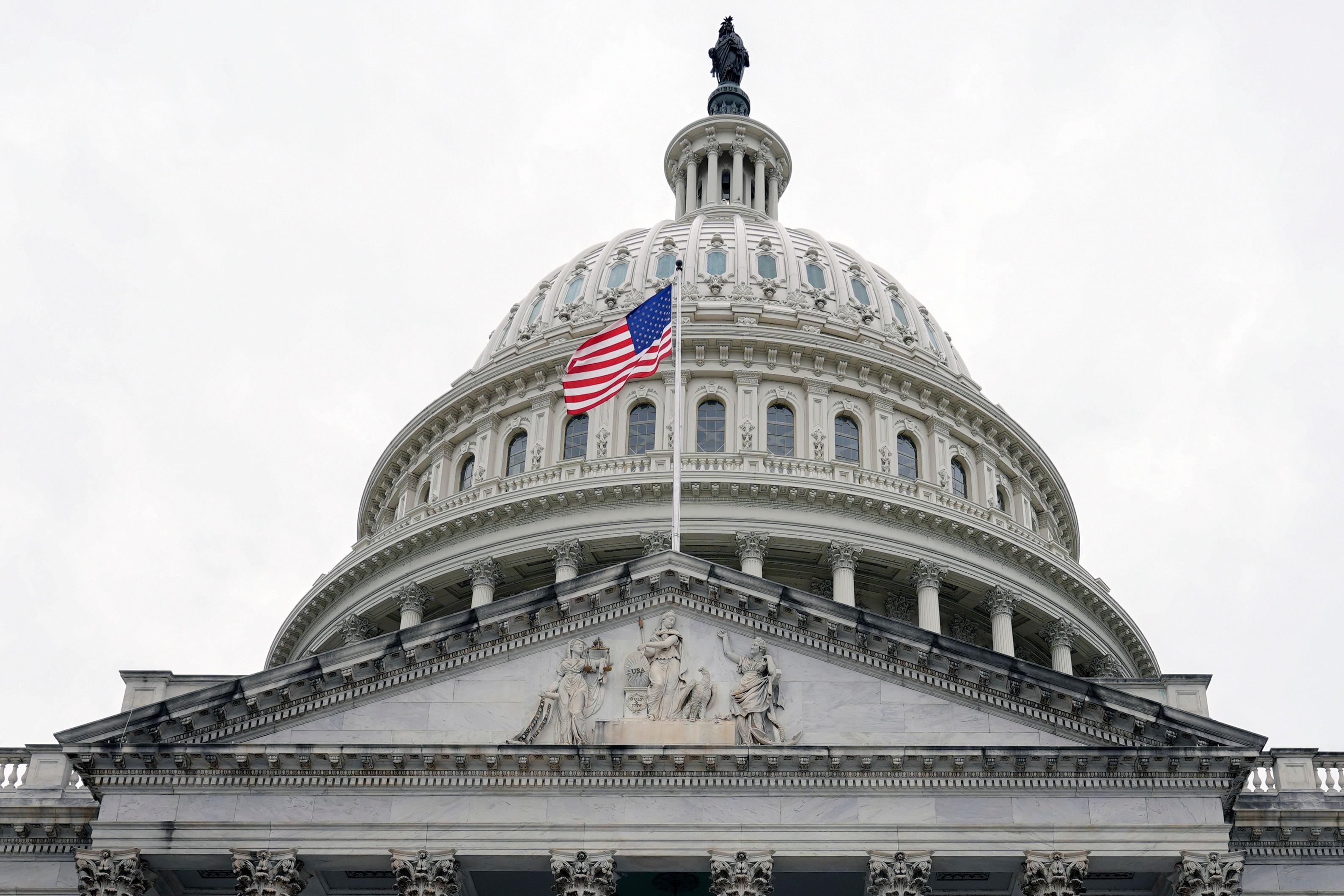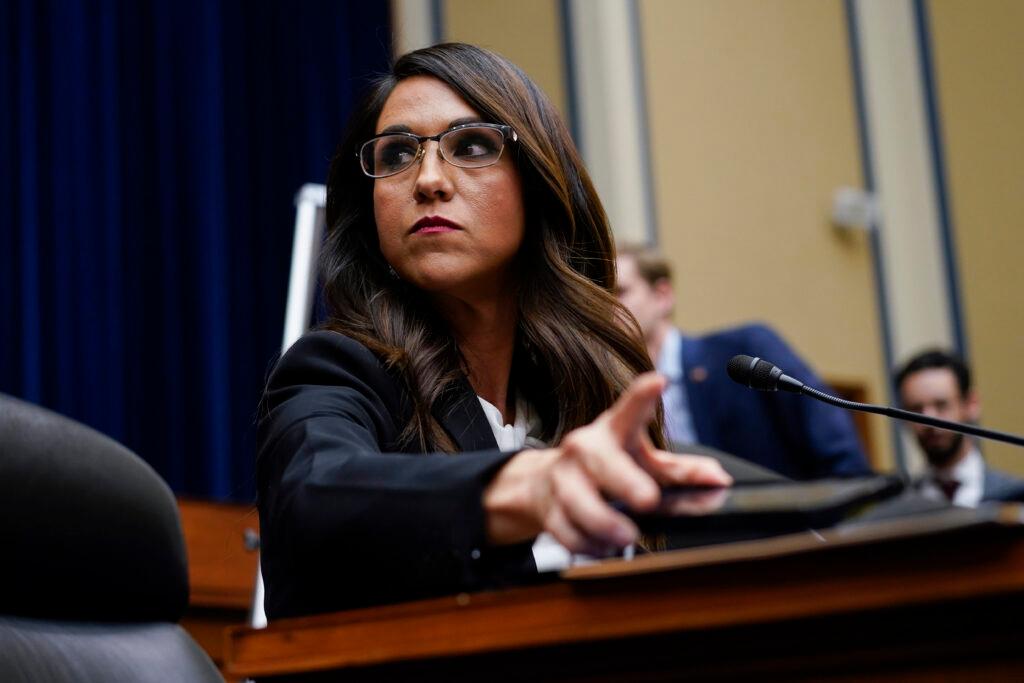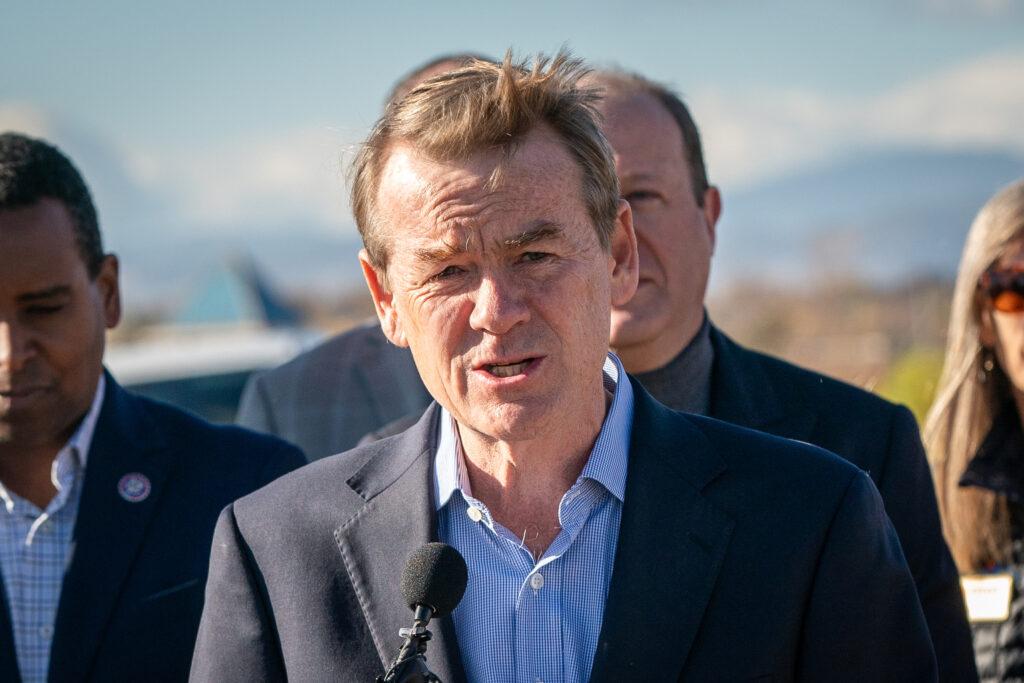
Whether or not Congress would manage to keep the government open took up a lot of oxygen on Capitol Hill last week, but that didn’t stop lawmakers from passing a number of other bills, as the 118th Congress tied up a few loose ends.
That final burst of productivity included a number of smaller Colorado bills that now head to the White House to become law.
Last fall the House passed the Women’s Suffrage National Monument Location Act, introduced by Colorado Rep. Joe Neguse and Arizona Rep. Debbie Lesko. The Senate gave its approval to the bill Friday. It places the monument, whose idea came from a constituent in Neguse’s district, on the National Mall.
“The National Mall honors some of the most important features of our shared American story. Conspicuously absent from this portrayal of our nation’s history, however, is the story of women’s suffrage,” said Wisconsin Sen. Tammy Baldwin, who introduced the Senate version of the bill with Tennessee Sen. Marsha Blackburn. “We have introduced this legislation to correct this glaring omission on the National Mall.”
A number of other Coloradans co-sponsored the bill, including Sens. Michael Bennet and John Hickenlooper, and Reps. Brittany Pettersen and Diana DeGette.
Mesa County could be buying some land from the federal government. The Senate passed the CONVEY Act, which the House passed earlier this year.
“It’s simple. It’s a fair-market-value purchase of 31 acres on the BLM disposal list and it will be used by the city of Clifton for economic development,” explained Rep. Lauren Boebert, who introduced the bill in the House.

Hickenlooper, who introduced the bill with Bennet and got the bill through the Senate called it a win-win for locals and for the federal government. “Mesa County, Colorado, out in the far west part of the state, is bursting with opportunities for economic development. The Convey Act … will help make sure there’s sufficient space to continue that growth.”
Bennet agreed. “Mesa County has made significant strides to secure a vibrant future for Clifton, and our legislation would be one more step towards prosperity for the community,” he said in a statement.

The two also applauded the final passage of the Water Resources Development Act, which included $20 million for El Paso County to address water supply and stormwater management issues, as well as $50 million for Fremont County to work on water supply infrastructure needs. Lastly, it authorizes two feasibility studies: one for the Templeton Gap Levee and one for Mountain and Fountain Creeks.
Both of Colorado’s senators, its Democratic Representatives and GOP Rep. Doug Lamborn supported the bill, while GOP Reps. Boebert and Greg Lopez were among the 18 no-votes for the bill.
Two bills to deal with the ongoing Western water crisis also made it through both chambers. The Senate passed the Drought Preparedness Act and WATER Data Improvement Act.
The Drought Preparedness Act was introduced by Neguse and Arizona Rep. Juan Ciscomani, and it reauthorizes the Bureau of Reclamation programs to address drought and minimize drought losses for Western states and Hawaii.
Hickenlooper and Wyoming Sen. Cynthia Lummis introduced the Senate companion measure and ended up shepherding the House version through the chamber last week.
“More than 40 million people rely on the Colorado River for water, food, recreation, and energy,” said Hickenlooper in a statement. “Our communities, our farms, our environment, all depend on water. These bills extend the programs that we know already work. At risk is our entire way of life.”
Meanwhile the WATER Data Act, again introduced by Neguse and Ciscomani in the House and Lummis and Hickenlooper in the Senate, reauthorizes programs through the U.S. Geological Survey to track the amount of water in streams and rivers and monitor groundwater.
Neguse said these reauthorizations are particularly important right now, given that Republicans are expected to try and cut unauthorized programs in the next Congress.
“That distinction really matters. These programs benefit rural Colorado, benefit small communities across our state, mountain communities that I represent,” said Neguse.

Before they left town for the holidays, Congress also passed a bill that would expand Social Security benefits to public service workers.
The Social Security Fairness Act passed the Senate, 76-20, with both Colorado Senators voting for it. In the House, the only Coloradan to vote against it was Lopez. It repeals statutes that reduced Social Security payouts to public sector employees, like police, firefighters and teachers.
A number of other bills made it through as part of larger packages, such as the EXPLORE Act.
However, a few Colorado bills that seemed like they might also cross the finish line fell victim to the clock.
Those included a bill from Boebert to establish new zip codes for communities across the country and a bill co-led by Rep. Yadira Caraveo aimed at cutting red tape. Both passed one chamber in the final weeks of the 118th Congress, but not the other.
The 118th Congress had the dubious distinction of being one of the most unproductive in the nation’s history, with the least number of bills signed into law in about 100 years.









